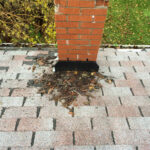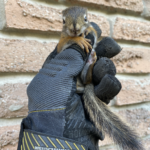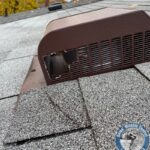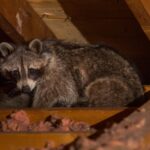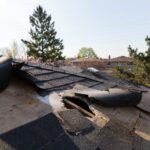If you find a raccoon latrine, or a place where raccoons regularly deposit their feces, it is important to take action to prevent the spread of disease.
Here are some steps to follow if you find a raccoon latrine:
- Avoid contact with the feces: Raccoon feces can contain a variety of diseases, including raccoon roundworm and salmonella. It is important to avoid touching or inhaling the feces, as this can lead to infection.
- Wear protective clothing: If you must clean up a raccoon latrine, it is important to wear protective clothing such as gloves, a mask, and protective eyewear. This will help to prevent direct contact with the feces and protect you from inhaling any airborne particles.
- Disinfect the area: After removing the feces, it is important to thoroughly disinfect the area with a solution of one part bleach to nine parts water. This will help to kill any remaining bacteria and prevent the spread of disease.
- Remove any contaminated materials: If the raccoon latrine is located on a porch or in a shed, it is important to remove any contaminated materials such as bedding, insulation, or wood chips. These materials can harbor bacteria and should be disposed of properly.
- Prevent future access: Raccoons are known to be highly adaptable and will return to a latrine if given the opportunity. In order to prevent future access, it is important to seal any openings or gaps in your home and remove any potential food sources, such as garbage or pet food.
For more raccoon facts and safety tips, ensure you educate yourself and your community about these intelligent yet potentially harmful creatures.
In conclusion, if you find a raccoon latrine, it is important to take steps to prevent the spread of disease. This includes avoiding contact with the feces, wearing protective clothing, disinfecting the area, removing contaminated materials, and preventing future access.


